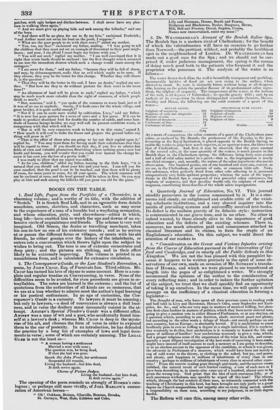3. Dr. WEATHERHEAD'S Account of the Beulah Saline Spa. The
Beulah Spa is a modern rival of Cheltenham; for the benefit of which the valetudinarian will have no occasion to go farther than Norwood,—the prettiest, wildest, and probably the healthiest spot in the neighbourhood of London. Dr. WEATHERHEAD has made out a good case for the Spa ; and we should not be sur- prised if, under judicious management, the spring is the means of doing mueh good both to the patients who frequent it and the proprietor who possesses it. The analysis of the water is as follows— The water drawn fresh fibm the well is beautifully transparent and sparkling- Inumnerable bubbles of fixed air are seen rising to the surface, when allowed to stand. Its taste is distinctly bitter, without being at all disagree- able, leaving on the palate the peculiar flavour of its predominant saline ingre- dient, the sulphate of magnesia. The temperature of thewater, at the bottona of the well, is 52 degrees et' Fahrenheit ; its specific gravity 1011; awl, by are analysis of its composition by those distinguished scientific chemists, Messrs. Faraday and Hume, the folloWing are the solid etintents of a quart of the water-
BEEL A II SALINE.
Sulphate of magnesia 123 Sulphate of soda and magnes% 32 -Nluriate of soda 19
Muriato of magnesia 1S+ Carbonate or lime 15
Carbonate of soda 3 210f Grains
As a mean of comparison, the saline contents of a quart of the Cheltenham pure saline, as analysed by Mr. Braude, the predecessor of Mr. Faraday in the pro- fessorship at the Royal Institution, is placed opposite to the Beulah Spring, to enable the reader to judge how much superior, as an aperient water, the latter is to that of Cheltenham. And, first, it may be observed, that the gross amount of the several salts, in the same quantity of the waters, is much greater in the Beulah than in the Cheltenham spring, the difference being forty-nine grains and a half of solid saline matter in a quart—that is, the impregnation is nearly one-third stronger ; and, secondly, the nature of the saline ingredients also merits observation. One hundred grains, out of one hundred and sixty-one, consist, as we see, in the Cheltenham, of inuriate of soda, or common table salt. Now, this substance, when perfectly freed from other salts adhering to it, possesses comparatively very feeble aperient properties ; whereas the mass of the ingre- dients in the Beulah Spa is composed of two powerful saline substances, the sulphate of magnesia, and that peculiar double salt, the sulphate of soda an& magnesia, constituting three-fourths of the whole saline impregnation.
CEIELTEN1TAM PERE SALINE.
Sulphate of magnesia 22
Sulphate of soda 30 Muriate of soda 100
Sulphate of lime 9
Grains 161


























 Previous page
Previous page